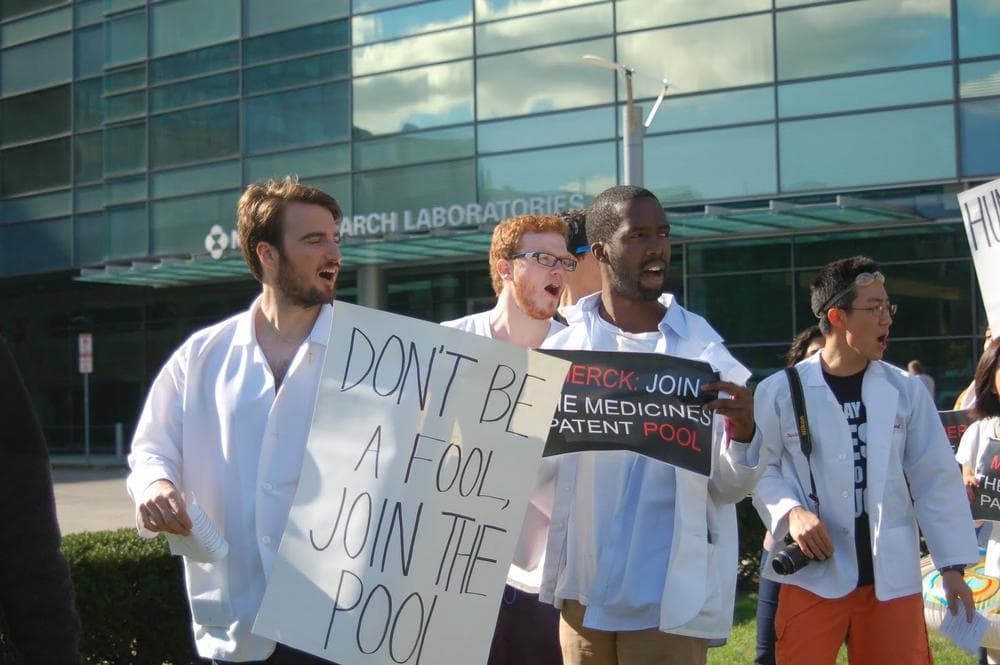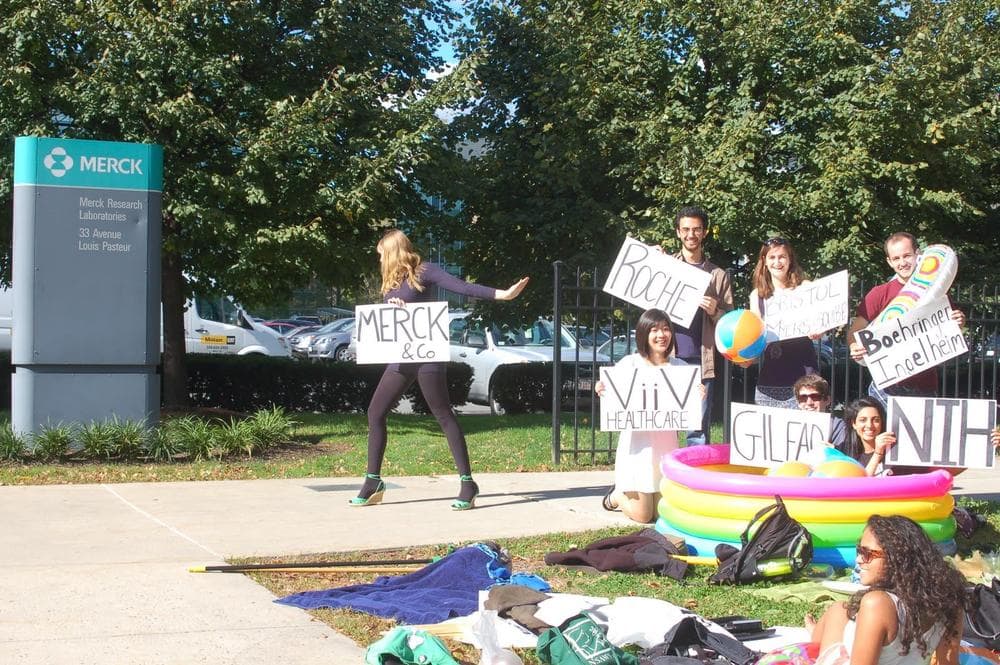Advertisement
'Occupy,' Longwood-Style: AIDS Drugs Protest Outside Merck

I'd planned to run over to the Longwood Medical Area on Friday to cover the "Occupy Merck" protest -- a small but creative "pool party" demonstration in the chill autumn air, aimed at pressuring the major pharmaceutical company into making its patented AIDS drugs more accessible to poorer countries.
Health reporters have had little call to cover the myriad "Occupy" groups springing up around the country, and this would have been my first chance to get in on the action. But I couldn't make it — despite the "Occupy" in its name, the group staged only a brief protest — so am playing catch-up from its press release, and there's more background in the Harvard Crimson:
A Patent Pool Party: Activists Make a Splash Outside Merck’s Pharmaceutical Labs
Groups warn that Merck’s refusal to join other companies in negotiating with the Medicines Patent Pool will jeopardize access to lifesaving AIDS treatment.(Boston, MA, Friday, 21 October, 1:30pm) Over 50 students from Harvard University, Boston University, and the Massachusetts Institute of Technology, people living with AIDS, and allies from Boston community groups held a “Pool Party” demonstration at Merck’s laboratories, adjacent to Harvard Medical School. The protesters donned bathing suits, sounding the call for Merck to enter negotiations with the Medicines Patent Pool.
And more from the release:
“We demand that Merck join in negotiations with the Pool by January 2012, produce licenses for its patented AIDS drugs, efavirenz and raltegravir, that allow generic distribution in all middle and low-income countries, and guarantee that the resulting licenses will not place restrictions on the procurement of Active Pharmaceutical Ingredients (API),” explained Alyssa Yamamoto, from Harvard College.
The Pool is a two-year-old organization established for pharmaceutical companies and other R&D organizations to voluntarily share their patented AIDS drugs, offering lower prices in poor countries. According to UNAID, last year only 35% of people needing HIV therapy had access to treatment. In the past year, the U.S. National Institutes of Health and the pharmaceutical company Gilead have licensed patents to the Medicines Patent Pool. Unlike its peers in Big Pharma, including Boehringer-Ingelheim, Bristol-Myers Squibb, F. Hoffman-La Roche, and Viiv Healthcare, Merck refuses to enter negotiations.

This program aired on October 24, 2011. The audio for this program is not available.
